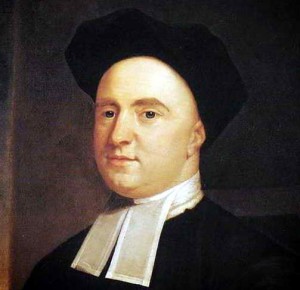 George Berkeley (1684 – 1753) “Being – meaning perceived”
George Berkeley (1684 – 1753) “Being – meaning perceived”
Anglo-Irish philosopher was born in the English family of nobility in Ireland, studied in Dublin, a period of life taught theology, often traveled to France and Italy, was a missionary in North America has also been a bishop in Ireland. George Berkeley passed a hard way of life. He was strong-willed and courageous, had lots of knowledge of physics, mathematics, physiology and philosophy, he boldly reported to the world new conclusions and generalizations, oblivious to the predecessors, had advocated and independent opinion.
Formation religious figure and philosopher was due to philosophical ideas of British empiricism John Locke, skeptic P. Bailey, Cartesians N. Malebranche. J. Berkeley continued every philosophical work, objections and form their own view, which in turn should leave the history of philosophy as “spiritualism”, “radical subjectivity”, “radical nominalism”, “radical sensationalism.”
J. Berkeley continued the ideas of British empiricism (J. Locke), Cartesians N. Malebranche, skeptic J. Berkeley, which in turn formed his world through denial and form their own view, which left a mark in the history of philosophy as “spiritualism”, ” radical subjectivity, “” radical nominalism” radical sensationalism”.
Most outstanding works of thinkers were such as “Apolityk”, “Seyrys”, “On the motion”, “Questionnaire”, “Alsifron”, “Philosophical Notes”, “Theory of vision or sound language”, “Tract on Principles of Human Knowledge” “On Velyn endless.”
What is subject to debate and denial J. Berkeley? The philosophical objections included: abstract existence of anything in the world bodies, causal relationships and forces defended their existence only in thought. He believed that the color can exist only when you can see it, it shall be considered current form, movement and size.
J. Berkeley believed that the existence we can only guess, beyond our perception any other thing. Based on the above it concluded philosopher “as being perception.” All beings existing outside of perception is the subject of metaphysics.
To understand the essence of thought George. Berkeley, back to Locke.
Locke argued as knowledge of the substance, not the subject of experience, he denied it. J. Berkeley believed, as we do not perceive substances, it is non-existent. Generated fiction of the mind is as nothing but a “substance” that is “matter”, and collectively sensory qualities are called “bodies”. On philosophical considerations nothing left if to remove the bodies of quality. Thus, we can conclude that perception is part of the world. The outside perception of the world does not exist.
J. Berkeley reasoned of knowledge and the process of nature, religion and the main issues of scientific, process knowledge and ethics. The main purpose of these reflections was the simplification of the materialist theory, the laws of disagreements real people from less real.
Creature is a disease of the mind “matter”, but the nature of this issue was conditional. Speaking of “matter”, we must remember that it is perceived only when it is not otherwise.
Considering the matter only as a means, a man uses when it is not in a position to know the reasons reality environment. Matter does not mean anything. Without content, detect, it prevents perception, creates a chimera without bringing us to the truth. Philosopher requires knowledge of the system to remove “matter”. J. Berkeley argued that expelling “matter” of the environment, we are freed from a significant number of conflicts and ambiguities that arose philosophers and theologians. Philosopher offered eternal spirit, which reveals a huge number of things by showing them the way that he determined to indicate how the laws of nature.
J. Berkeley as one of the first theorists of modern times took on responsibility for simplification theoretical truth of materialism. He had founded the critique of scientific materialism and philosophical, not a philosophical and religious positions. Philosopher pointed to the fundamental principles of clarity, the deepened knowledge in scientific experiments future time.
J. Berkeley reasoned question of subjectivity and objectivity relations in feelings of Variety existence of causality and objectivity, the composition of psychological cognitive process of building a mystique. Philosopher was the first who opened the way to the “absolute idea”, founded the revival of the doctrine of “world of ideas” as the final cause of all things, which is not submission anyone.
It allows philosopher tried to highlight the world, its visibleness, human and moral qualities of contact persons in the environment. Social in Berkeley was the result of “spiritual.” This is a reason to think about it as one of the founders, philosophers new social model. At the end of his life George. Berkeley prefers classical objective idealism.

Thanks to the excellent guide
Its like you read my mind! You seem to know so much about this,
like you wrote the book in it or something. I think that you could do with a few pics to drive the message home a little bit, but other than that, this is excellent blog.
A fantastic read. I will definitely be back.